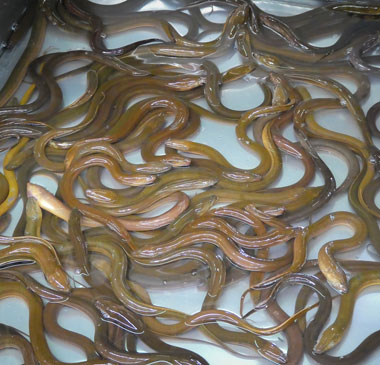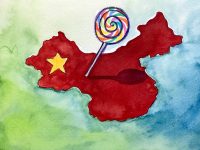Eel fraud is big business. The illegal international trade in glass eels is estimated to be worth up to EUR3 billion[i].
Like most seafood, eel meat is vulnerable to food fraud. But, their poorly understood breeding patterns and endangered species status make eels particularly vulnerable to illegal trading and international smuggling.
A glass eel is a baby eel, and it is a heavily protected fish stock. It also makes a lucrative food fraud target: just one kilogram of smuggled glass eels can be turned into food products worth €25,000[ii].
Glass eels are attractive to food fraud criminals because they are an obligatory input to eel meat supply chains. Aquaculture fisheries produce around 95% of eel meat globally[iii], with most aquaculture production in China[iv]. Unlike other aquaculture animals, eels cannot successfully breed in captivity. This means that every eel raised for food was once a wild-caught glass eel.
Glass eels are in short supply. They are not allowed to be exported from Europe and there are strict restrictions on catch quotas and trade in other countries. One kilogram of live European glass eels in is worth €300/kg when first caught[v]. If those live eels are successfully smuggled out of Europe, they are worth €6,000/kg by the time they reach Asia[vi].
In April 2022, the U.S. Department of Justice indicted[vii] a major seafood distributor and eight of its employees for allegedly smuggling large quantities of glass eels from Europe to their eel-rearing facility in China, where the eels were raised, processed, then shipped to the U.S. as eel meat products. When intercepted by customs, the eel meat was found to be fraudulently described as American eel (Anguilla rostrata), which is a lawful import, rather than European eel (Anguilla anguilla).
References:
[i] Securing Industry (2021) Major Glass Eel Trafficking Ring Taken down by EU Op. Accessed from https://www.securingindustry.com/food-and-beverage/major-glass-eel-trafficking-ring-taken-down-by-eu-op/s104/a13544/
[ii] European Commission Department of Food Safety (2019) EU Coordinated Case on Illegal Trade of European Eel. Accessed from https://food.ec.europa.eu/safety/agri-food-fraud/eu-coordinated-actions_en#eu_coordinated_case_on_il
[iii] Food and Agriculture Organization of the United Nations (2014), FAO Globefish Research Programme Vol 114. Accessed from https://www.fao.org/3/bb217e/bb217e.pdf
[iv] FAO, Fishery and aquaculture statistics. Global Aquaculture Production 1950-2018 (FishstatJ), FAO Fisheries and Aquaculture Department, Rome, 2020. Accessed from https://www.fao.org/fishery/en/statistics/software/fishstatj/en
[v] Sustainable Eel Group, accessed from https://www.sustainableeelgroup.org/eu-food-fraud-network-example-of-an-eu-coordinated-case-on-illegal-trade-in-european-eels/
[vi] Sustainable Eel Group, accessed from https://www.sustainableeelgroup.org/eu-food-fraud-network-example-of-an-eu-coordinated-case-on-illegal-trade-in-european-eels/
[vii] Department of Justice (2022) Major Seafood Dealer and Eight Individuals Indicted for International Wildlife Trafficking. Accessed from https://www.justice.gov/opa/pr/major-seafood-dealer-and-eight-individuals-indicted-international-wildlife-trafficking
















